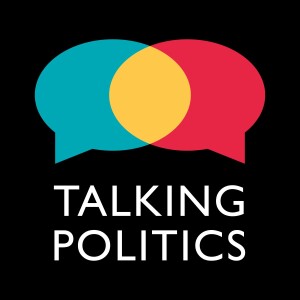
Barring an act of God, Boris Johnson is going to be the next leader of the Conservative Party. We're exploring what that means in two parts. Today, Helen and David talk about the domestic implications. Can Johnson avoid an election? Can he hold on to the seats he needs while winning others he doesn't have? Will he unite or divide his party? Will Labour be able to stop him either way? Plus we talk about what's at stake for the Tories in Johnson's relationship with Trump. Next week: Europe and Brexit.
Talking Points:
What shifted to make Boris Johnson’s victory almost inevitable?
We need to go back to the third attempt to get the meaningful vote through the House of Commons. That was Theresa May’s chance.After 31 March, the political calculus changed. If May had been able to pass her deal, there might have been more of an effort to stop Johnson from becoming PM.Labour is now the more divided party. And the Conservative Party has united around a very unpopular leader.
There are some parallels to the United States.The Labour remainers have been emboldened since the 31 March, but Labour also looks more divided than it did a few months ago.Are there enough people in the parliamentary Conservative Party who would be willing to precipitate a general election if Johnson pursued no deal?
It’s not impossible, but this would be a big deal.Could Johnson usher in a new relationship with the United States?
A lot would ride on his relationship with Trump—that’s risky. Is there anything that Johnson can say that will not alienate Trump and not alienate the British public?The most important decision next week, if Johnson becomes PM, will be who he appoints as Chancellor.
Whoever it is will likely have a lot of power.What happens with Brexit will be crucial to what kind of economic policy comes next.The Conservatives will need to maintain their coalition, and probably make up for seats in Scotland.Will the opposition to a Johnson prime ministership coalesce around Labour or not?
Last time, the Conservatives committed an act of destruction with the social care issue. And if the next general election happens after Brexit, there will not be the same disciplining effect.If Johnson can walk a very narrow path in the next 6 months (which is far from certain), he could be prime minister for a long time.Mentioned in this Episode:
Hunt and Johnson on Trump’s tweetsSteve Baker’s tweet in response to Trump’s tweetJohn Lanchester on Universal Basic IncomeAdam Tooze on GermanyFurther Learning:
Who is Boris Johnson? The Party Splits! (In 1846!)And as ever, recommended reading curated by our friends at the LRB can be found here: lrb.co.uk/talking
For information regarding your data privacy, visit acast.com/privacyMore Episodes
 2021-06-24
2021-06-24
 2021-06-17
2021-06-17
 2021-06-10
2021-06-10
 2021-06-03
2021-06-03
 2021-05-27
2021-05-27
 2021-05-20
2021-05-20
 2021-05-13
2021-05-13
 2021-05-06
2021-05-06
 2021-04-29
2021-04-29
 2021-04-22
2021-04-22
 2021-04-15
2021-04-15
 2021-04-08
2021-04-08
 2021-04-01
2021-04-01
 2021-03-25
2021-03-25
 2021-03-18
2021-03-18
 2021-03-11
2021-03-11
 2021-03-04
2021-03-04
 2021-02-25
2021-02-25
Create your
podcast in
minutes
- Full-featured podcast site
- Unlimited storage and bandwidth
- Comprehensive podcast stats
- Distribute to Apple Podcasts, Spotify, and more
- Make money with your podcast
It is Free
- Privacy Policy
- Cookie Policy
- Terms of Use
- Consent Preferences
- Copyright © 2015-2024 Podbean.com




